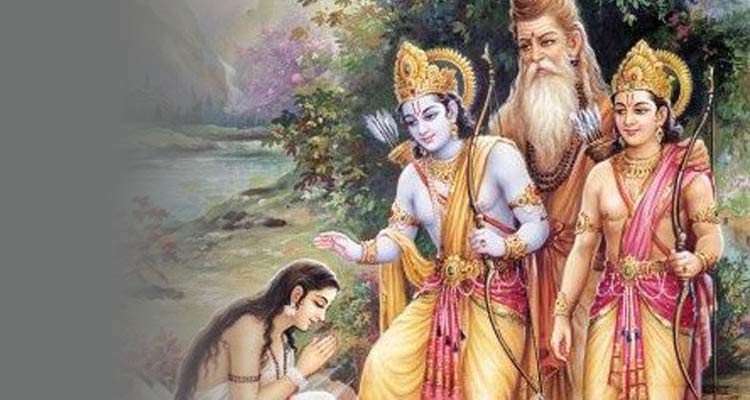An ancient Vedic goddess once called the ‘female shadow’ of Indra, she has remained a shadowy figure in our myths. And her relationship with Indra represents the paradigm of inequality of traditional marital relationships in patriarchal societies.
The ancient story of Indra’s marriage
Before Indra became the Purana author’s favourite farcical subject, he was the mighty leader of the gods. He commanded adulation, armies and amorous attentions of the most beautiful women in all the three worlds. One such woman was Shachi – the daughter of an asura named Puloma. Famous for her voluptuous body and bewitching beauty, Poulomi (daughter of Puloma) caught Indra’s eye. Indra’s character is known to be driven by sensuality, as is made amply clear in the myth of Ahalya. Here, too, he is naturally driven by passion and vows to have Shachi. No devi would do; Indra would go on to make this daughter of an asura his wife, and eventually kill his father-in-law. Thus wedded, Poulomi became Indrani/Aindri/Mahendri and became the queen of Amravati – Indra’s heaven – and bore him many children, including Jayanta, Jayanti, and Chitragupta. She is, in fact, one of the seven Matrikas (ancient mother goddesses) of Indian mythology. Like him, Indra makes his wife immortal and a goddess. This makes her Shachi ‘the luckiest of women’, for the ‘misfortune of widowhood’ can never fall upon her. She also becomes the template for a consort or shakti of a male god. After this tale of Indra and Shachi’s union, we find that all the male gods of the Hindu pantheon are assigned goddesses to act as wives and consorts in quick succession. Brahma gets Saraswati, Vishnu gets Lakshmi and Shiva gets Parvati.
One consort, many Indras
But now comes the most interesting part of this story. Having attained the position of the queen of heavens, Shachi’s place is secured forever, but not so for Indra. Indra, you see, is a title – a position that may be won by anyone who manages to complete 100 ritual sacrifices. This is the reason why we hear stories of Indra constantly trying to disrupt other people’s spiritual quests. But he isn’t always successful; ever so often, a king, a sage or an asura surpasses his achievements and drives Indra out of Amravati. And sometimes, he abdicates his own throne, as in the next story! Having defeated the great serpent-demon, Vritrasura, Indra becomes the most powerful of all gods. But Indra is not at peace and goes away from heaven to atone for the killing. With Indra in hiding, the gods and sages begin to get restless. The throne of heaven cannot stay empty for long. They start looking for a candidate who can become the new Indra, but there is none who has 100 Ashwamedha yagnas to his credit. The closest find is King Nahusha, whose tally is 99. Despite Shachi’s disapproval, Nahusha is invited to occupy the throne and he does so more than readily.
No substitutes, thank you
Nahusha begins to enjoy all the pleasures of heaven, but is dismayed to find that Shachi isn’t available to him. As the new master of Amravati, he expects to own all of Indra’s possessions, including his beautiful wife. Full of lust, he implores Shachi to accompany him and accept him as her new spouse. But Shachi cleverly defers him and buys time, saying she would come to him after completing a ritual in a few days’ time. Nahusha leaves on a hopeful note. Shachi quickly traces her husband-in-hiding and apprises him of the situation. She sends Nahusha the message that she would be ready to receive him if only he came to her in the most extraordinary of mounts. Nahusha calls for the seven sages and has them carry his palanquin. If that weren’t disrespectful enough, he even kicks one of them out of impatience. This invites the wrath of the sages and he is cursed to lose his heavenly position and become a snake on earth. Shachi’s steadfastness and love are proven beyond a doubt here, especially as she is the one with the choice. With her support, Indra is able to return home. But that does not change Indra’s ways, for when he resumes his kingship, he resumes his philandering ways too.
Indra’s wife was an angry goddess
Much like his Greek counterpart, Zeus, Indra is constantly found in situations of promiscuity. It is, therefore, hardly a surprise that Shachi – much like Hera – is given to fits of rage and jealousy. Indeed, she is sometimes known to be the goddess of anger and envy. But that may also have to do with the fact that she is the offspring of an asura – beings that are considered embodiments of negative traits. While Shachi’s show of anger is not as direct as Hera’s, her resentment and pride show up elsewhere. In the instance of the Parijat, for example… Once, when Krishna and Satyabhama come to visit Indra and Shachi, Satyabhama is entranced by the Parijat flowers in the heavenly garden of Nandan Kanan. She wishes to take the tree back to earth where all may enjoy its divine beauty. When Krishna uproots the tree and is about to take it away, he is stopped by Shachi’s guards who claim it as their queen’s favourite. Satyabhama argues that it cannot be her private property, since the tree was one of the many treasures that emerged from the churning of the ocean and hence belongs to everyone.
Was it love or guilt?
Indra jumps to Shachi’s defence and challenges Krishna to a fight. Krishna takes on all of Indra’s army singlehandedly and easily defeats it. He then defeats Indra equally easily, leaving the king of gods shamefaced. He concedes defeat and tells Satyabhama she can take the Parijat with her. That Indra readily fights for and apologises on behalf of Shachi can mean two things: either he really loves his wife or that he was making up for yet another transgression. Which one do you think is likely?


